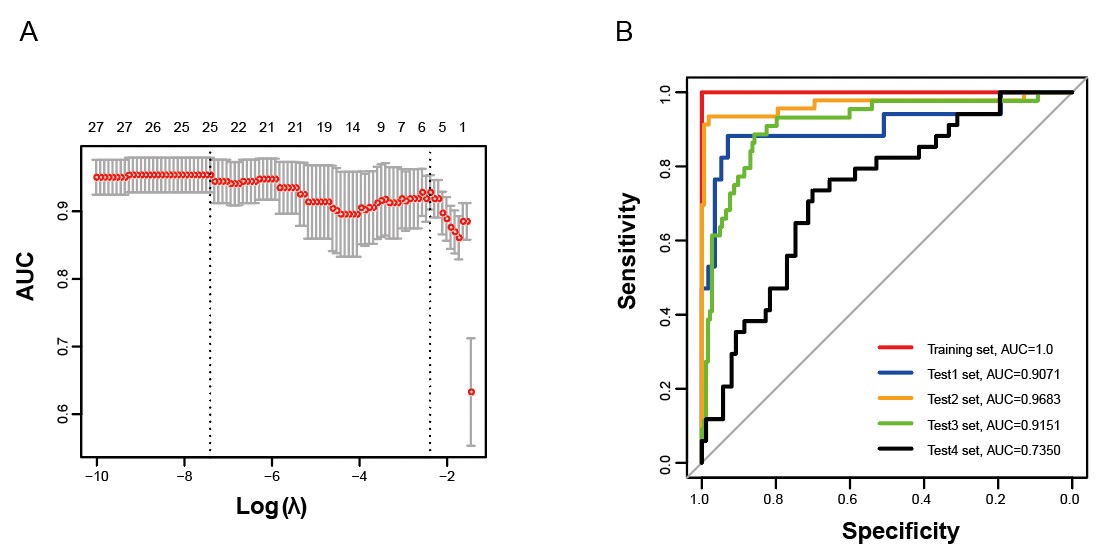A research team proposed a genetic classifier that can predict the sensitivity of neoadjuvant chemotherapy for breast cancer in the field of tumor molecular markers recently. The team is led by Prof. YANG Wulin and DAI Haiming from Hefei Institutes of Physical Science (HFIPS), Chinese Academy of Sciences.
Breast cancer is a kind of malignant tumor with high clinical and biological heterogeneity. Different subtypes have different clinical characteristics, responses to chemotherapy. Therefore, it is important to develop methods to predict treatment sensitivity, which is the basis of precision medicine for breast cancer, so that patients can choose the best treatment strategy and avoid overtreatment.
In this research, researchers developed a prediction model with 25-gene signature using LASSO Logistic regression, using patient drug response data.
"The model has many advantages," said YANG Wulin, who led the research team, “it can predict pathologic complete response to paclitaxel and anthracycline-based neoadjuvant chemotherapy with high accuracy, apply to various subtypes of breast cancer, and demonstrate an important contribution of the immune ecosystem to chemotherapeutic sensitivity.”
Having shown good predictive abilities for different batches of data and various breast cancer subtypes, and displaying good generalization ability, this gene signature is expected to be promoted as a new diagnostic scheme to predict the sensitive one to chemotherapy in clinical practice.
"It can therefore select the optimal scheme for breast cancer and provide patients with chances of precise treatment.” Said YANG.
The results have been published in Frontiers in Immunology

Construction of LASSO Logistic regression model and its predictive power for neoadjuvant therapy (Image by FU Changfang)
Contact:
ZHAO Weiwei
Hefei Institutes of Physical Science (http://english.hf.cas.cn/)
Email: annyzhao@ipp.ac.cn
 Tel: +86-551-65591206
Tel: +86-551-65591206
 Fax: +86-551-65591270
Fax: +86-551-65591270
 Emai: zhous@hfcas.ac.cn
Emai: zhous@hfcas.ac.cn
 350 Shushanhu Road
350 Shushanhu Road